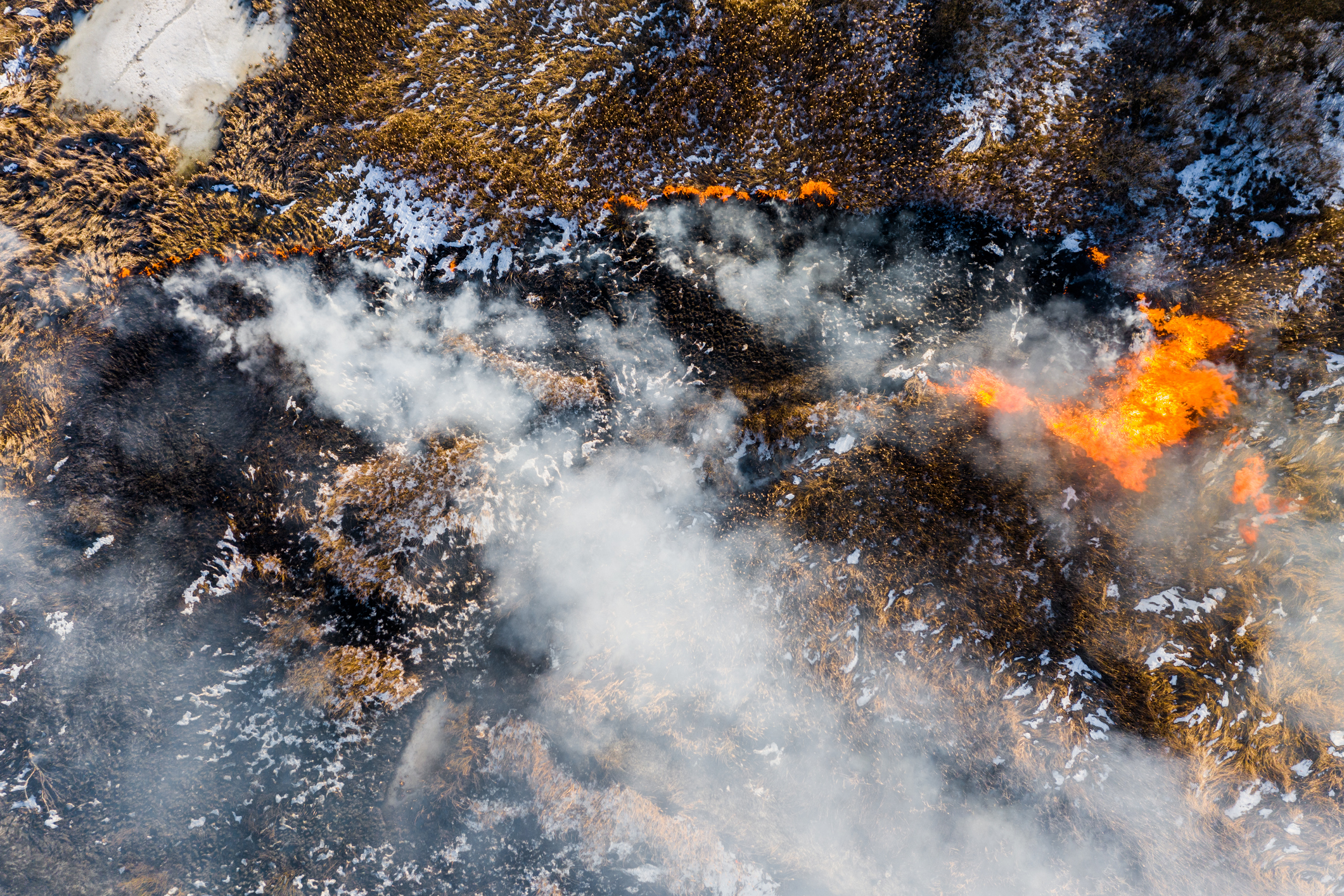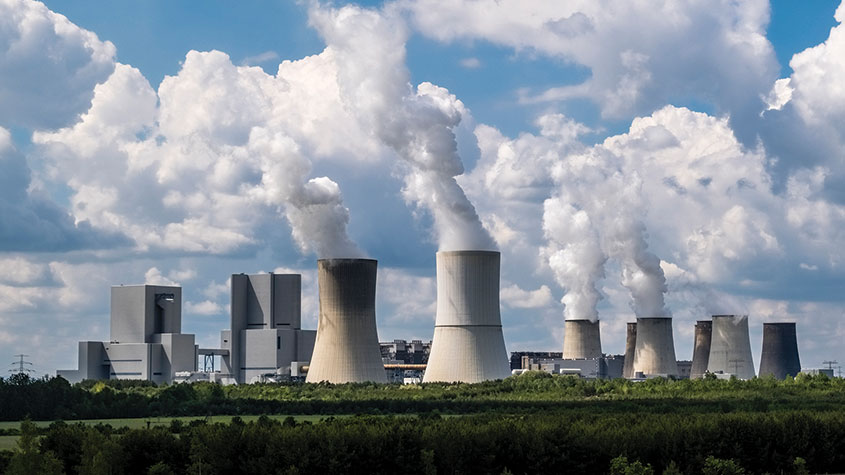Whose flag flies from the North Pole?
The scramble for the Arctic cooled when the oil priced plunged. But the countries on its borders are still jockeying for position, says Simon Wilson.
Get the latest financial news, insights and expert analysis from our award-winning MoneyWeek team, to help you understand what really matters when it comes to your finances.
You are now subscribed
Your newsletter sign-up was successful
Want to add more newsletters?

Twice daily
MoneyWeek
Get the latest financial news, insights and expert analysis from our award-winning MoneyWeek team, to help you understand what really matters when it comes to your finances.

Four times a week
Look After My Bills
Sign up to our free money-saving newsletter, filled with the latest news and expert advice to help you find the best tips and deals for managing your bills. Start saving today!

Who owns the Arctic?
The five nations bordering the Arctic region claim sovereignty over parts of it, and for the most part those claims are clear and uncontested. The five nations are Canada, the United States, Denmark (Greenland), Norway and Russia and the key piece of international law that governs their claims is the UN Convention on the Law of the Sea, which was signed in 1992 and came into force in 1994 (though America has yet to ratify it).
Under the Convention, in addition to their national territorial waters (out to 12 nautical miles or 22km off the coast,) nations can claim an exclusive economic zone of 200 nautical miles (370km). Everything else remains international waters, or the "high seas". But, crucially in the case of the Arctic, they can also assert control over the seabed beyond that limit and whatever resources lie beneath it if they can prove that, geologically, the seabed in question is an extension of their continental shelf.
Why is that important?
Until recently, no one had bothered to make credible claims to sovereignty over the North Pole itself. However, under rules laid down in the 1992 Convention, Russia and Denmark (and less credibly, Canada) have all claimed that the Lomonosov Ridge, a vast, 1,800km-long underwater mountain ridge that stretches across the top of the world, running close to the North Pole itself, is in fact such an extension of their territory.
MoneyWeek
Subscribe to MoneyWeek today and get your first six magazine issues absolutely FREE

Sign up to Money Morning
Don't miss the latest investment and personal finances news, market analysis, plus money-saving tips with our free twice-daily newsletter
Don't miss the latest investment and personal finances news, market analysis, plus money-saving tips with our free twice-daily newsletter
Denmark spent 12 years and $55m gathering the data for its claim (based on its sovereignty over Greenland), which it formally filed with the UN in December 2014. Russia first made a claim, which was rejected, but has been working on a revised case ever since. This week its government announced that its work was complete, and expects to present it to the UN on 9 February.
Hasn't the oil-price slump made all this irrelevant?
It's certainly made it a less pressing issue. Analysts' estimates of the price at which it makes economic sense to drill in the Arctic range from $75 to $100 and higher (compared to around the $30 mark today). Thus, even though the region is thought to hold about 90 billion barrels of undiscovered conventional oil (13% of the global total), the last few months alone have seen Shell abandoning its drilling off the coast of Alaska, Norway's Statoil pulling out of the Chukchi Sea (north of the Bering Strait between Russia and Alaska) and the US government cancelling plans to sell or extend future leases.
But the Arctic question is not just about oil and gas: it's about mineral wealth (including diamonds), fishing rights, control of shipping lanes and geopolitical positioning. Moreover, the consequences of global warming are not necessarily foreseeable and nor is the future price of oil and gas. Nations are jockeying for position now on a just-in-case basis and are thinking long term. The competing geological claims to the Lomonosov Ridge, for example, are likely to take decades, rather than years, to resolve.
Could Arctic tensions turn hot?
The prospect of armed conflict in the far north is remote, for several reasons. First, the uncertainty over what is there, and the vast expense of operating there, mean that national governments have strong incentives to resolve conflicts peacefully. Indeed, all five of the Arctic nations have long been committed to resolving conflicts through existing customary law, notably the UN Convention.
Second, most of the promising oil and gas fields are within established and recognised national economic zones. And third, four of the five nations (Canada, America, Denmark and Norway) are long-standing Nato allies. Washington and Ottawa might have differences over the territorial status of some Arctic waters, but they are not going to start a war over it. On the other hand, the fifth nation is Russia.
Why is that worrying?
It might not be. Russia is a sovereign state that is as entitled as any other to protect its interests. Nevertheless, there is potentially cause for concern, given that the Russian economy and state are both dependent on energy resources for their survival and that under President Putin, Russia is increasingly assertive in defining and defending its interests not just in Ukraine, but also in the icy north.
Over the past two years Russia has markedly stepped up its military presence in the Arctic, opening new permanent bases, reopening bases mothballed since the end of the Cold War, and deploying its most advanced anti-aircraft missiles to the region. In December, Russia's defence ministry announced that advanced S-400 air defence missiles were being installed on the Novaya Zemlya archipelago and at the Arctic port of Tiksi part of a wider plan that includes building a total of 13 airfields and ten radar posts in the Arctic region.
Shell's cold feet
Was Shell's retreat from the Arctic "premature", wondersformer BP executive and oil industry academic Nick Butler inthe Financial Times. "Exploration is a risky business, and first impressions can be misleading. Oil and gas might never havebeen developed in Iran, Alaska or the North Sea if the industryhad given up after initial wells drilled were unsuccessful.
A single hole in the ground tells you only about a narrowslice of geology within an area of thousands of square miles."The Arctic does contain resources, as firms such as Statoiland Eni have shown. "Were it not for the political uncertaintysurrounding Arctic drilling, Shell might well have carried on".
Get the latest financial news, insights and expert analysis from our award-winning MoneyWeek team, to help you understand what really matters when it comes to your finances.
-
 How a ‘great view’ from your home can boost its value by 35%
How a ‘great view’ from your home can boost its value by 35%A house that comes with a picturesque backdrop could add tens of thousands of pounds to its asking price – but how does each region compare?
-
 What is a care fees annuity and how much does it cost?
What is a care fees annuity and how much does it cost?How we will be cared for in our later years – and how much we are willing to pay for it – are conversations best had as early as possible. One option to cover the cost is a care fees annuity. We look at the pros and cons.
-
 No peace dividend in Trump's Ukraine plan
No peace dividend in Trump's Ukraine planOpinion An end to fighting in Ukraine will hurt defence shares in the short term, but the boom is likely to continue given US isolationism, says Matthew Lynn
-
 Investors need to get ready for an age of uncertainty and upheaval
Investors need to get ready for an age of uncertainty and upheavalTectonic geopolitical and economic shifts are underway. Investors need to consider a range of tools when positioning portfolios to accommodate these changes
-
 Ukraine invades Russia – what are the political implications?
Ukraine invades Russia – what are the political implications?Ukraine's surprise invasion into Kursk could change the course of the war politically
-
 What’s in store for the UK economy in 2023?
What’s in store for the UK economy in 2023?Advice The UK economy is facing a lot of problems right now. What are the main challenges and how will these affect the economy in the year ahead?
-
 Eurozone economy heads for paralysis
Eurozone economy heads for paralysisNews Record high energy prices, the threat of recession in Germany and squabbling in Italy's government has left the eurozone fighting fires on all fronts.
-
 Governments will sink in a world drowning in debt
Governments will sink in a world drowning in debtCover Story Rising interest rates and soaring inflation will leave many governments with unsustainable debts. Get set for a wave of sovereign defaults, says Jonathan Compton.
-
 Why petrol prices are higher than in 2008, despite lower oil prices now
Why petrol prices are higher than in 2008, despite lower oil prices nowBriefings The price of petrol is at an all-time high. Yet despite oil prices being higher in 2008, petrol was cheaper back then. Saloni Sardana explains why.
-
 How the West can win Putin’s war on food
How the West can win Putin’s war on foodOpinion The West could easily make up the shortfall if it let the free market rip, says Matthew Lynn.